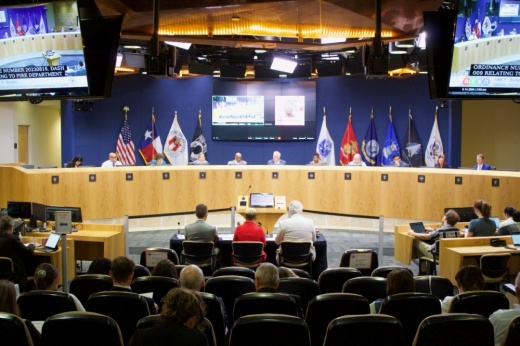City Council's Aug. 14 vote on the fiscal year 2024-25 budget came after weeks of review this summer and with some final adjustments. Austin's next fiscal year starts in October and runs through September 2025.
"Austin’s 2024-2025 budget is a strategic blueprint that balances the city’s immediate needs with long-term vision, prioritizing investments that reflect the values and aspirations of our community,” Austin City Manager T.C. Broadnax said. “By focusing on sustainability, equity and resilience, we are committed to ensuring that Austin remains a livable and welcoming city for all."
City leaders voted 10-1 in favor of the next budget and tax rate, with council member Mackenzie Kelly against.
The overview
The majority of budgeting details remained in line with Broadnax's original framework released in July. Council members also voted to fund several million dollars' worth of their items of interest, selected and adjusted from the dozens they'd proposed in recent weeks.
That included nearly $9 million for homeless bridge shelter, rapid rehousing and permanent supportive housing programs; nearly $2 million to add more staff for parks maintenance; $1.3 million to continue Austin's monthly grant program for low-income families; $1.81 million to support an enhanced EMS presence downtown; and $100,000 to support Austinites with flood insurance needs.
Funding was also directed towards violence intervention programs; support for initiatives in the police, fire and EMS departments; traffic and transportation management; and animal shelter staffing.
A full list of approved budget amendments can be viewed below.Some of those items were funded through a reduction in the city's planned reserve allocations for the next fiscal year.
A subquorum of council members—Ryan Alter, Vanessa Fuentes, José Velásquez, Chito Vela and Zo Qadri—secured more than $4 million for a group their priorities with funding that otherwise would've gone toward city reserves. They directed one-time funding toward homelessness, public safety departments and pay increases for early childhood workers.
That move was opposed by Mayor Kirk Watson and council members Alison Alter, Paige Ellis and Leslie Pool, who said they were concerned about the impact on future budgets and Austin's "rainy day fund" given projected budget shortfalls.
“You’re building some challenges in for your next budget, and I think you just need to be open-eyed about what that is," Alison Alter said. "These are all ... worthwhile investments, but how this is structured does not set them up for success, in my view.”
What residents should know
Council approved a tax rate of $0.4776 per $100 of property value for the upcoming fiscal year. That's over 7% higher than the current $0.4458 rate.
The owner of a median-valued home in the city—assessed at $524,082—can expect to pay nearly $2,000 in taxes over the next year, according to city estimates. Other utility charges and city fees are projected at about $3,500 in total.The approach
In the hours leading up to their vote, council members heard from dozens of Austinites about their views on the budget.
Many asked to fund homelessness, housing, harm reduction and substance abuse programs, and other requests forwarded by local groups in the "Community Investment Budget." Many of those topics were addressed in council members' approved amendments.
Others called to limit cost of living impacts and reduce Austin's overall spending after years of rising property tax bills, and with both Travis County and Austin ISD each seeking to raise their taxes this fall.
Several commenters also pointed out the record Austin Police Department budget that's approaching a half billion dollars in the next year—by far the biggest department in Austin's general fund—with a more than $18 million addition. More money may also be needed in the next year for significant pay raises sought by the Austin Police Association in its ongoing contract negotiations with the city.
As state law now generally prevents any future decreases in police funding, requests were made for smaller annual increases for APD given that Texas lawmakers have also limited how much more revenue cities can collect year-to-year. On the other side, testimony centered on the need for council to back the police force with its requested funding to make the city feel safer.
Also of note
Beyond budgeted items, officials also approved several resolutions to kick-start city work on initiatives that don't require immediate funding.
Among those items were support for staffing and maternity leave in the Austin Fire Department, planning for the creation of an LGBTQ+ community center, developing a civic action plan for the veteran community, cementing city support for Juneteenth holiday celebrations, and additional homelessness efforts such as the search for North and South Austin locations for the Downtown Austin Community Court.
A full list of those items from council can be viewed on the Aug. 14 agenda.





